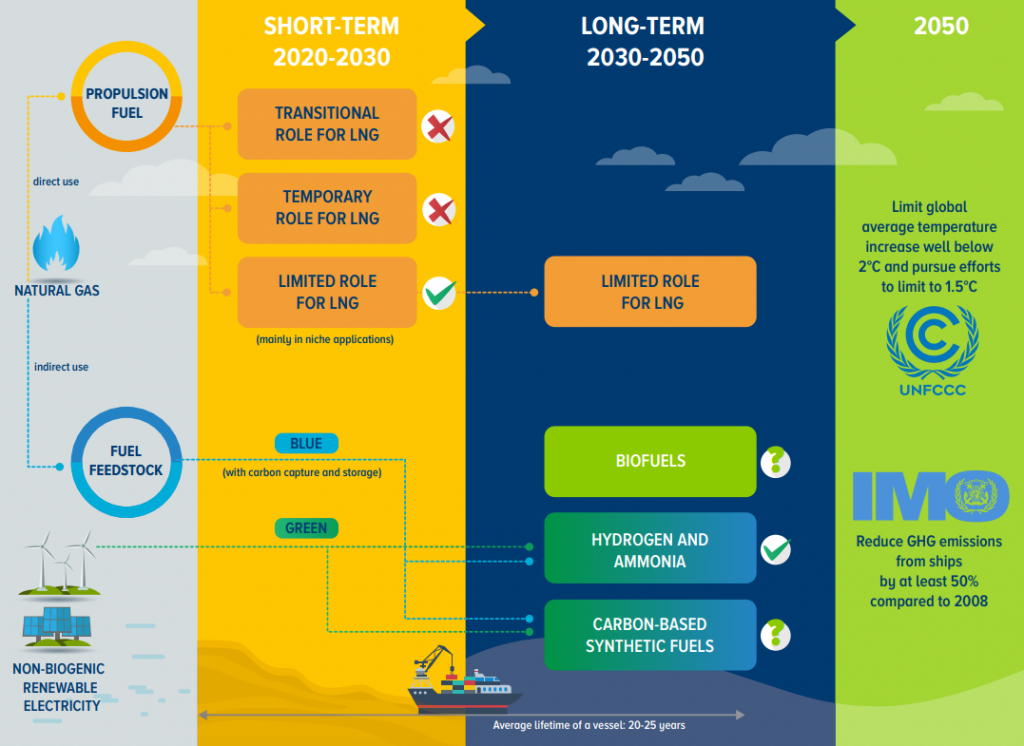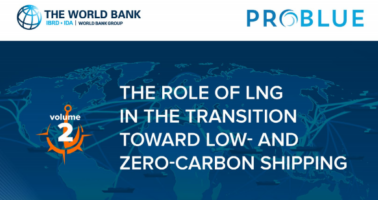April 15, 2021
The report, financed by the World Bank, does not recommend the use of LNG as a marine fuel or the support of investments in LNG infrastructure, not only because it is not compatible in the long term with a goal of zero emissions but also denies its advantages as transition fuel.
The study addresses the problem of methane emissions from ships and the LNG logistics chain, analyzing the consequences of a foreseeable range of methane leaks, GHG emissions and machinery efficiencies throughout the life cycle to put limits to the magnitude of benefits or harms of GHGs.
Overall, this report suggests that, even in the short term, LNG may only play a limited role in decarbonizing the shipping sector. The transitional role of LNG is threatened, among other factors, by the questionable supply of cost-competitive and sustainably sourced LBM and LSM. A large-scale temporary role for LNG seems unlikely given the uncertain benefits of GHGs.
The report underscores the need for urgent and strong policy measures to regulate methane emissions both in the LNG supply chain and in its use on board existing ships and in new construction. This will be important whether or not LNG becomes an important fuel or not. For example, although methane emissions could be reduced by using newer machinery with lower levels of methane slippage, this would not address the risk of methane emissions upstream in the supply chain.
The report also makes a strong recommendation to focus public support on developing a policy that effectively accelerates research, development and deployment of zero carbon fuels. Such policies would send another clear signal regarding the role of LNG, and help mitigate the risks associated with significant future acceptance of LNG in the maritime sector.
The analysis in this report concludes that LNG is likely to have a limited role as a marine fuel, and demand for LNG will decline rapidly after 2030. Therefore, to minimize the potential loss of profits, industry stakeholders should have consider the questionable long-term competitiveness of LNG as a bunker fuel when developing your future business and investment strategies.
The only option, they conclude. must have natural gas, is its use in the synthesis of hydrogen / ammonia, using carbon capture techniques.

The report is available on the World Bank website: The Role of LNG in the Transition Toward Low- and Zero-Carbon Shipping

